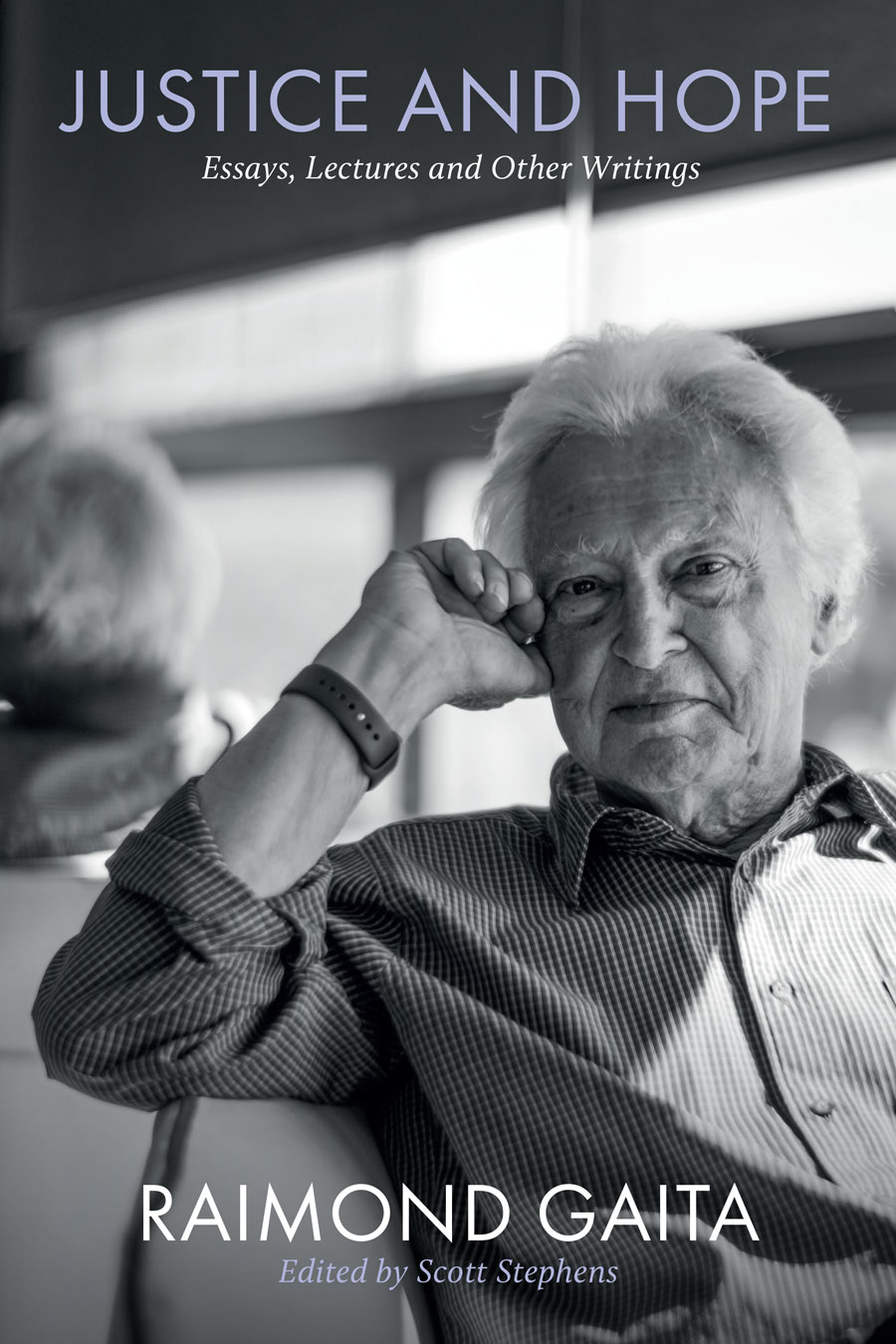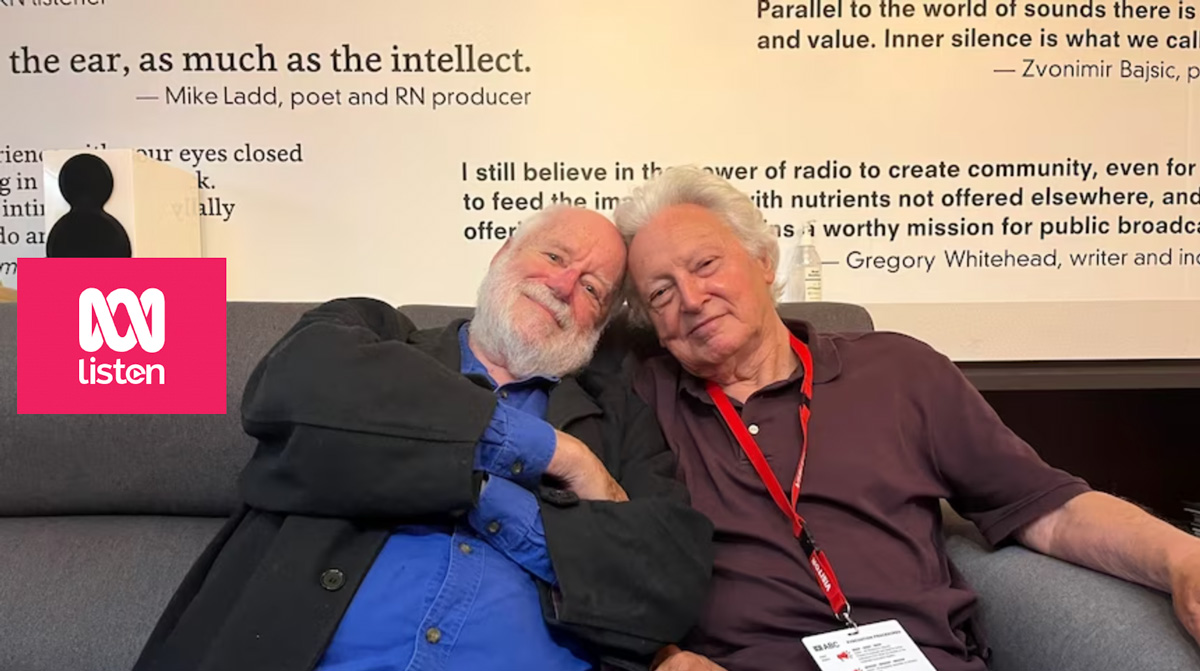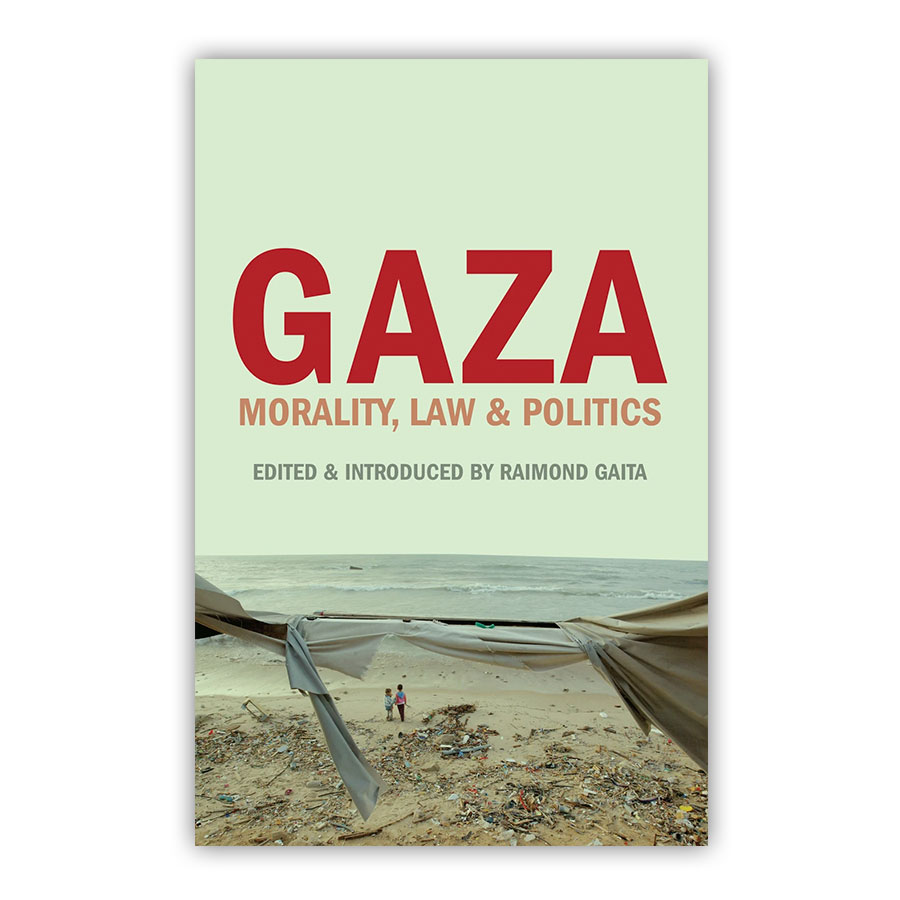
Essays, Lectures and Other Writings
– edited by Scott Stephens
From where will we draw the moral energy to stay true to justice?
For more than three decades the incomparable voice of Raimond Gaita has been summoning us to new conversations that deepen our understanding of what matters most to human life and awaken the sense of our common humanity. For Gaita, we are never more fully alive than when we are fully present to one another in conversation.
In a time when modes of communication tend to superficiality and self-promotion, when political debates are increasingly inured to lies and even violence, and the moral demands of dialogue give way to a torrent of competing monologues, Gaita’s invitation to rediscover what genuine conversation requires of us could not be more timely. These collected writings at once invite us into that conversation and enact its severe demands.
Uncompromising in judgment yet sympathetic in attitude, the rhythms of Gaita’s writings are strangely reassuring—strange inasmuch as his subject matter is so often morally or politically grave, or otherwise humanly epic. The surprising sense of reassurance flows, I think, from the close attention to what human beings are actually like, the cast of characters either personally known or briefly encountered that may enter the discussion here and there as foil or exemplar or conversational partner. One senses behind every portrayal, every conversation recounted, every abstract philosophical rumination, the personal well of love for the world that is not only one among Gaita’s explicit themes but also the attitude that lends a generosity of spirit to every page.
We need Rai Gaita more than ever. His work constitutes an ethically serious, fiercely humane, exquisitely fair-minded, pained but hopeful, exploration of our human condition and the politics and law that organise it. To read the essays in this collection is to find their subjects (ranging from Primo Levi to the future of the university to the agonies of war and torture) freshly illuminated and radically redescribed with a quiet powerful care, yes. But more than this, the reader finds herself fortunate enough to be in the company of one of our wisest and most generous thinkers and sentence makers.
Rai Gaita’s Romulus, My Father is one of the most beautiful works of literature produced in this country. To have a collection of Rai’s writing is a cause for celebration. Justice and Hope is an invaluable treasury of profound wisdom on the most urgent issues of our time, always from the point of view of searching for our common humanity. Because Rai looks unflinchingly at the hardest aspects of human life—dehumanising evil, climate change, the prospect of war—from a point of view of great love, with the preciousness of every human being at the centre of his vision, he gives us hope. Extraordinary, indispensable, and exhilarating.
Think about this: “Our humanity is neither fixed nor secure, but always something we are called upon to rise to”. I could dwell for- ever in these words of Raimond. The idea that we are “fixed” is a dangerous one. It kills us. I have seen the world over what this does to us, how it pits us against each other. We fix ourselves and we pick our sides. Raimond knows there is no humanity in that. We live in the broken parts; we exist in the reaching for each other. Or at least we should. But too often our inhumanity gets in the way. Love.
That’s what we are called to rise to. Raimond tells us that justice is worthy of our love. Yes, but love is hard. As Dostoevsky wrote, love is active. He told us it demands that we live without fear. And that is too much for us. So, we allow injustice, or worse, we inflict it. We are fearful and we kill out of fear. Read Raimond’s words and turn courageously to truth. Turn away from fear. And if you can’t do that then wait. That’s what Simone Weil—someone beloved of Raimond and of me—told us. Read this book … and wait. Wait for love. Because we become what we love.
As I read through the collected essays in Justice and Hope, I was not surprised by the eloquence of Gaita’s arguments and the compassion of his reckoning. I have been long impressed by the beauty of his writing and the integrity of his moral reasoning. What was exhilarating, was to read someone taking on the profound questions of what it means to be human and not hide behind cant or pre-varication to do so. Thoughtfulness and integrity are part of every page of this book. As is tentativeness, as is doubt. And when it is needed, there is also certainty. The questioning and moral clarity that Gaita brings to the notions of justice and hope—and to his- tory—are galvanising and crucial. What is even more profoundly moving is his writing about love, of how any exploration of justice and hope—and of being human—cannot ignore the question of how we love and care for one another. This book is a gift.





